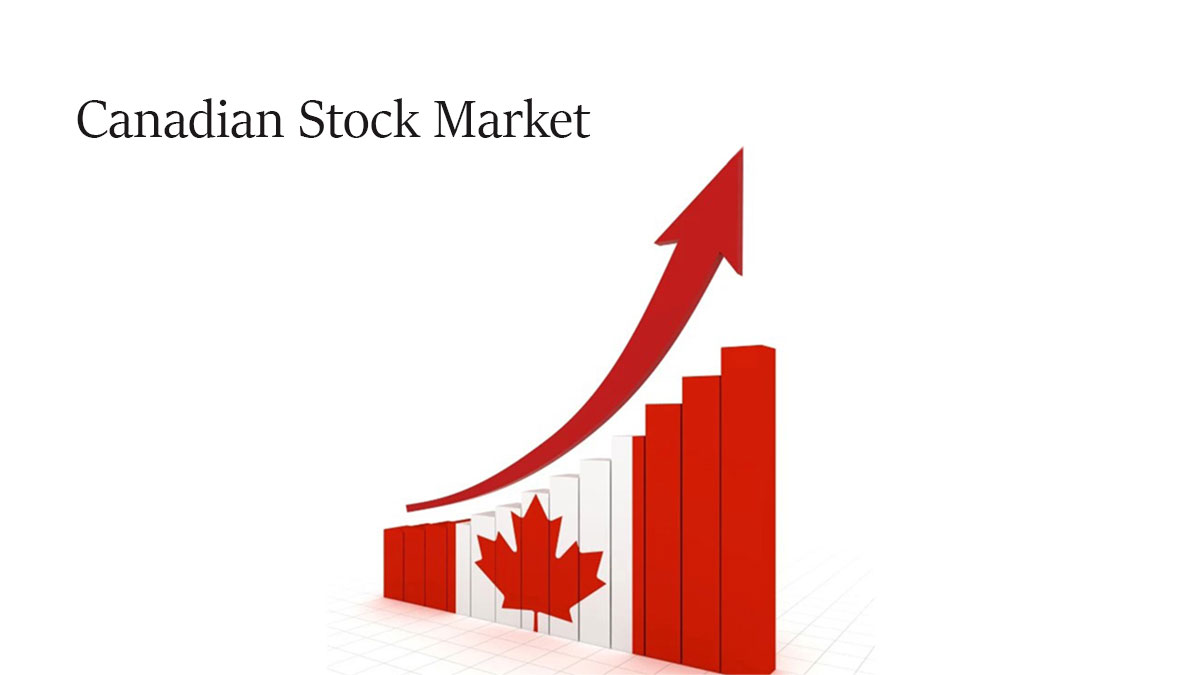- Education
- Introduction to Trading
- What is Canadian Stock Market
What is Canadian Stock Market
Canada is included in the group of seven leading countries with a developed market economy and is among the leaders in terms of living standards.
The development trend of the Canadian stock market. The Canadian stock market is one of the most developed in the world. It is characterized by significant turnover of securities, high development of the stock market infrastructure and a variety of financial instruments.

Over the past two decades, Canadian stock market has undergone fundamental changes related to the growth in the volume and importance of the market in the economy, the deepening of financial integration processes, the introduction of new technologies, the emergence of complex financial products, and increased competition.
Canadian stock market is the most important element of the country's financial and credit system and occupies a decisive place in ensuring the transformation of savings into investments. In Canada, as in a number of other developed countries (USA, Great Britain, Australia), the stock market is traditionally used as one of the main sources of financing the economy.
KEY TAKEAWAYS
- The stock market is a structure of certain rules, regulations and mechanisms that allow stocks to be traded.
- Canadian stock market is the most important element of the country's financial and credit system and occupies a decisive place in ensuring the transformation of savings into investments.
- Investors do not need a license, but they get access to exchange trading only through professional participants.
What is a Stock Market
The stock market is a structure of certain rules, regulations and mechanisms that allow stocks to be traded.
This concept refers not only to stock exchanges for trading operations, but also the main tool for attracting cash flows into business, with the help of which enterprises acquire real market value through publicly issued shares.
The essence of the stock market and its functions are almost the same as any other market - a meeting of sellers with buyers to conclude mutually beneficial transactions.
Another important component of the securities market is the attraction of free capital and financial savings. That is, stock trading provides many investment options and concentrates money in the market.
Let us put it in simple terms, the Stock market is one of the areas of the financial market where securities act as a commodity: stocks, bonds, futures, options and others. At the same time, each transaction is made in accordance with strict rules and under certain conditions.
What is Canadian Stock Market
The term Toronto Stock Exchange was founded in 1861 and is based in Toronto, Ontario.
TSX is Canada's leading stock exchange with over 1,500 listed companies, including those from the energy, mining, technology and real estate sectors.
The Canada Exchange is also home to international listings and exchange-traded products. The latter became fully electronic after the closure of the marketplace in 1997. In 2007, TSX merged with the Montreal Exchange (MX) to form the TMX Group.
In the Canadian stock market, such instruments as company shares, investment funds and exchange-traded products (ETPs), bonds, commodities, futures, options and other derivative products are also actively traded.
A few historical facts:
- All transactions are carried out in Canadian dollars. According to the 2020 Listing Guide, there were 1,572 listed issuers on the exchange.
- The exchange launched the TSE 300 Composite Index in 1977, which was similar to the S&P 500.
- Composed of the most influential stocks on the exchange, the name of the index was changed to the S&P/TSX Composite Index in 2002.
- In 1999, TSX became Canada's only senior stock exchange. Two years later, it acquired the TSX venture capital exchange, which primarily lists small-cap stocks.
- TMX Group was taken over by the Maple Group takeover, which was completed in 2012.
How does the Stock Market Work
Let's start with the functions of the stock exchange
Stock exchanges organize trading and support fair pricing. Exchanges guarantee the execution of transactions, include and exclude securities in quotation lists. Information about all transactions on the exchange is public and available on the websites of the exchanges.
Trading on the stock exchange takes place at a certain time and according to the rules that the exchange establishes.
Price quotation is the determination of the value of securities in the process of exchange trading. In addition to securities on stock exchanges, you can trade exchange contracts.
Exchange contracts are derivative financial instruments that can be used to insure assets against a sharp price change. Exchange contracts are either futures or options.
- A futures contract is an obligation to buy or sell a certain asset in the future at a fixed price in the contract. An option contract is not an obligation, but the right to buy or sell an asset at a fixed price. Anything can be an asset: commodities, interest rates, indices, and even the weather.
- Exchange contracts are traded on the futures market, because they imply the delivery of the underlying asset in the future, that is, after a certain period of time.
The execution of transactions on the exchange is guaranteed by the central counterparty.
Next, let's define the participants in the stock market
Stock market participants can be divided into professional participants - brokers, depositories, clearing companies - and ordinary investors.
Up-to-date data on the participants of the Russian financial market.
Professional members must be licensed and regulated by regulatory authorities. Investors do not need a license, but they get access to exchange trading only through professional participants.
Brokers are professional participants in the stock market. They fulfill the orders of investors and earn commissions. The investor concludes an agreement with a broker and opens a brokerage or individual investment account - IIA.
Regulators protect investors and control professional participants in financial markets so that there are no violations. In Russia, stock exchanges are controlled by the Central Bank. Issues licenses to professional stock market participants.
Issuers place securities on the market. Issuers can be companies and governments of individual cities, regions and states.
Investors buy securities. As a rule, it is impossible to buy securities directly from issuers; you will have to use the services of intermediaries - brokers - and open a brokerage account.
Types of transactions in the stock market
Transactions can be conditionally divided into purchases of securities for long-term investment and speculative - purchases and sales of securities for profit.
The investor can:
- Buy stocks, on the exchange slang such a transaction is called "long". If an investor does not have enough money, he can borrow it from a broker at a percentage. A purchase using the broker's money is called a margin trade.
- Sell stocks. On the stock exchange, an investor can even sell securities that he does not have. To do this, he borrows them from a broker and pays a certain percentage for this. In exchange slang, such a speculative transaction is called a "short".
Well, it remains for us to understand how stocks are traded on the stock exchange
During trading on the stock exchange, transactions are concluded between participants. Each transaction goes through several stages:
- An order to buy or sell securities. The application enters the electronic system of the exchange. The investor can make an application by phone or via the Internet.
- Reconciliation of the parameters of the transaction between the buyer and the seller.
- Clearing. At this stage, the exchange checks the correctness of the transaction, verifies the calculations and draws up the documents.
- Execution of a transaction is the exchange of securities for money.
Closing deals on the trading floor
Previously, it was possible to conclude transactions only directly in the exchange building. Representatives of brokers jostled in the "pit", shouted, interrupted each other's bets. And then electronic trading systems appeared and there was a revolution in stock trading.
Electronic stock trading
Investors can buy and sell securities via the Internet anywhere, the main thing is that the exchange works at this time. A few years ago, for trading operations, it was necessary to install software on a computer, now applications can be submitted through a smartphone application or a personal account on the broker's website.
How to Buy Stocks in Canada
Before you decide to buy shares in Canada, you will need to go through a few steps. First of all, understand what stock trading is, especially if you are a beginner. Research the Canadian stocks you want to trade. Conduct fundamental analysis to understand what drives stock prices; this part is quite large and full of nuances. You will also need to follow the stock price chart and analyze price history to discover patterns that will later help you predict price action and decide whether to go long or short.
To sum up, whether to buy stocks in Canada or elsewhere, traders must practice a thorough methodical approach, and if you want to learn more; here is How to Buy Stocks in Canada article, it will get you going.
Bottom Line on Canadian Stock Market
The stock market is a place where investors buy and sell shares of companies. This is a set of exchanges where companies issue shares and other securities for trading. It also includes over-the-counter (OTC) markets, where investors trade securities directly with each other (rather than through an exchange). All this also applies to the Canadian stock market.
The point of the Canadian stock market is to provide a place where anyone can buy and sell fractional ownership in a publicly traded company. It distributes control of some of the world's largest companies to hundreds of millions of individual investors. And the buying and selling decisions of these investors determine the value of these companies.
The market allows buyers and sellers to negotiate prices; the negotiation process provides the highest possible selling price as well as the lowest possible buying price at the moment. Each exchange keeps track of the supply and demand for the shares listed there.

